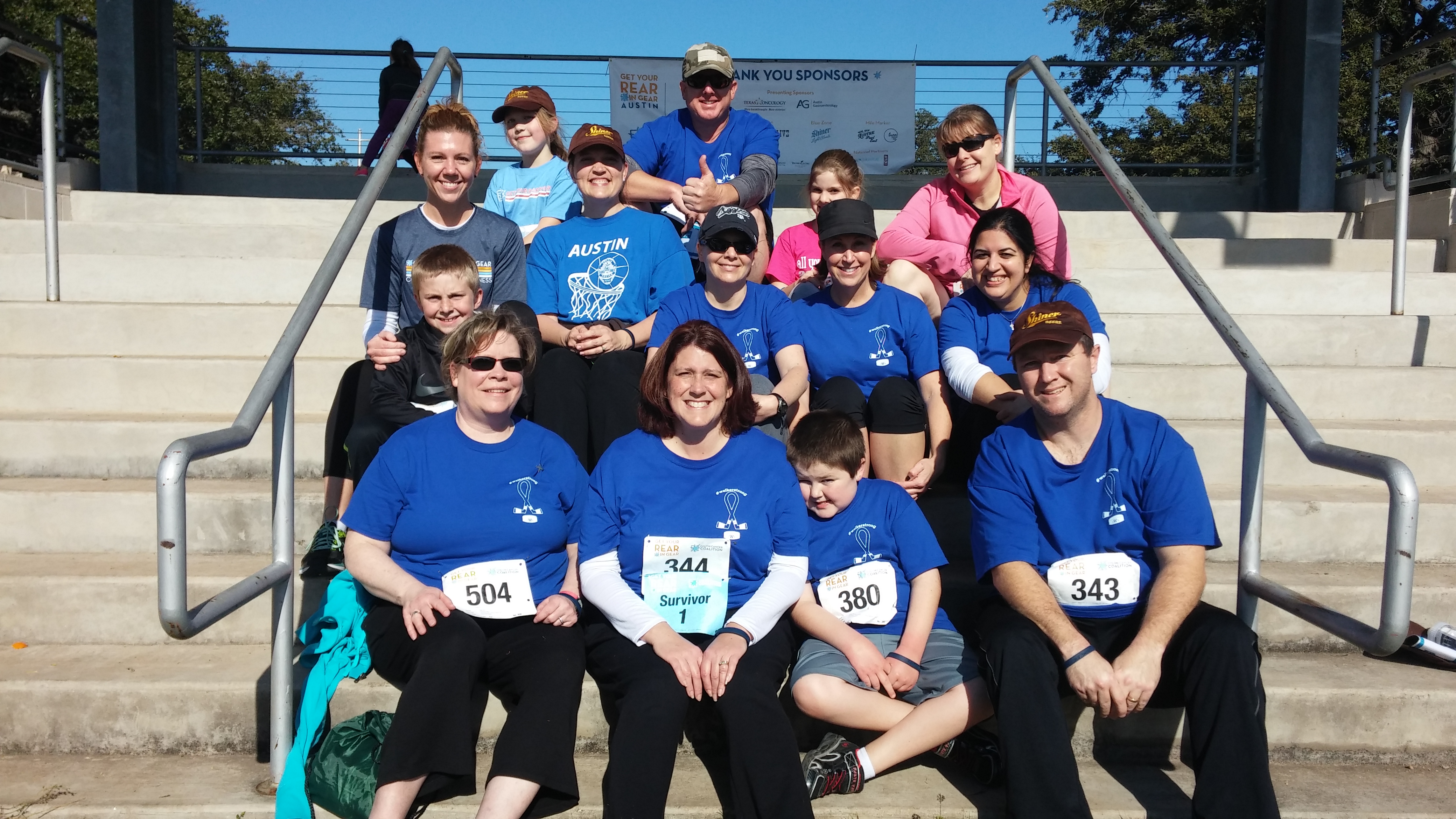
Guest blog by Barb Kunz, MS, CGC
Around 5-10 percent of colorectal cancers are due to an inherited cause that can be found with genetic testing. Rare disease day gives us a chance to talk about the increased use of multi-gene testing as a way to find rare and common causes of inherited colon cancer. The use of these tests has increased over the last 5 years, as they have become more affordable.
Genetic test results can prevent cancers and save lives in families burdened with hereditary colorectal cancer. When a specific inherited cause of colon cancer is found through testing, the information can help guide care for colorectal cancer survivors and their relatives. The detection of a gene mutation provides relatives with a simple test they can use to tell if they have, or have not, inherited the risk present in the family. This targeted family testing is called cascade testing. The knowledge of a specific diagnosis can help guide medical decisions for many relatives such as the age to start and how often to have colonoscopies; whether screening is needed for other cancers; and whether surgeries can be used to prevent cancer.
The most important cause of hereditary colon cancer to learn about is Lynch syndrome, which causes 1 in 30 colon cancers. Lynch syndrome causes early-onset, multiple colon cancers and has other cancer risks, including uterine, ovarian and stomach cancer. Unfortunately, only around 1 in 20 people who have Lynch syndrome know it. The failure to identify families with Lynch syndrome means these families often have relatives who were diagnosed with preventable cancers. Cancers that could have been prevented with strategies such as colonoscopies starting at age 20-25, and hysterectomies after childbearing. Identifying more families with Lynch syndrome is one of the goals highlighted in the 2016 Cancer Moonshot Blue Ribbon Panel report, because it will have such a big nationwide impact, especially if relatives have cascade testing.
Multi-gene tests can provide new information for families, by exploring a range of genetic possibilities. These tests, also called panel tests, vary in the number of genes tested and which genes are selected to be on the test. Multi-gene tests for colon cancer typically include the genes linked with established colon cancer syndromes, including Lynch syndrome, FAP, MAP, Juvenile Polyposis, Cowden Syndrome and Peutz Jeghers syndrome. These tests often also include syndromes where colon cancer is increased, but not the main feature of the syndrome, such as Li Fraumeni syndrome. In the last few years, newer genes such as GREM1, POLE, and POLD1 have been added to many tests, as more is learned about these genes. The benefit of including more genes on a test is that families that have these conditions will be found. Drawbacks of larger tests are that there may be limited information about cancer risks linked with some of the genes, and screening and prevention guidelines may not yet exist for a gene. Also, there is an increased chance of a result that is not well understood, a gene change called a “variant of uncertain significance”, meaning that not enough is known about the change to know if it is associated with increased cancer risk.
Multi-gene tests are especially useful when:
- There are multiple genes that can cause a similar history.
- A family history fits with the testing criteria for more than one syndrome and many cancer types.
- Testing was done in the past and no cause was found, but a family history is still suggestive of hereditary cancer.
- Someone with a family history of early-onset colon cancer or polyposis is looking for guidance for their own care.
New technologies like multi-gene tests are providing answers that were not available before. There will be more answers as the field of genetics continues to change. Genetic counselors can meet with individuals and families to provide assessment of family histories, and help them navigate their choices.
Barb Kunz, MS, CGC
Certified Genetic Counselor
Private Genetic Consultant, Tree Ring Genetics
Additional links for more information:
Genetic Alliance
Lynch syndrome brochures (in Spanish and English)
National Society of Genetic Counselors Directory
 Barb Kunz is a genetic counselor with over 30 years of experience in a wide range of hospital and clinic settings. She has been a cancer genetic counselor for the last 18 years, through a North Memorial Healthcare in the Twin Cities. She recently started a private consulting business, called Tree Ring Genetics.
Barb Kunz is a genetic counselor with over 30 years of experience in a wide range of hospital and clinic settings. She has been a cancer genetic counselor for the last 18 years, through a North Memorial Healthcare in the Twin Cities. She recently started a private consulting business, called Tree Ring Genetics.
Barb has a strong interest in advancing public and professional genetic education, through targeted projects and as a featured speaker at public events, on radio and television. She is a past Chair of the Minnesota Genetic Counselors Association. She actively worked toward licensure of genetic counselors in Minnesota, which passed in 2016. She just completed two terms on the Minnesota Cancer Alliance steering committee (2010-2016), and serves on the policy committee of the MCA.
Contact Barb

